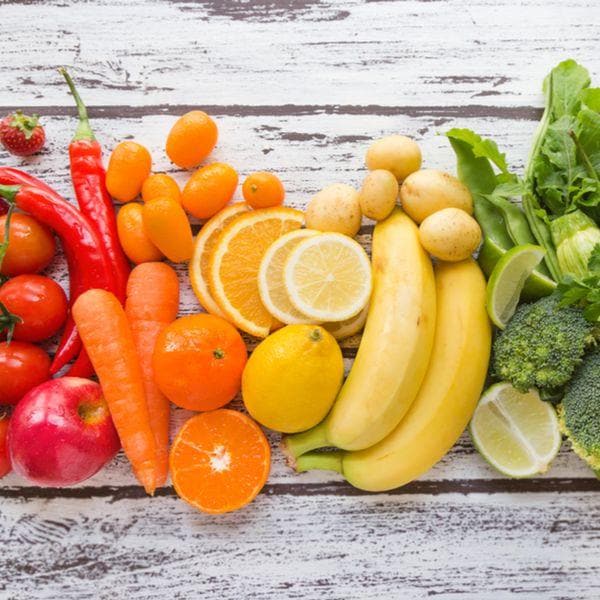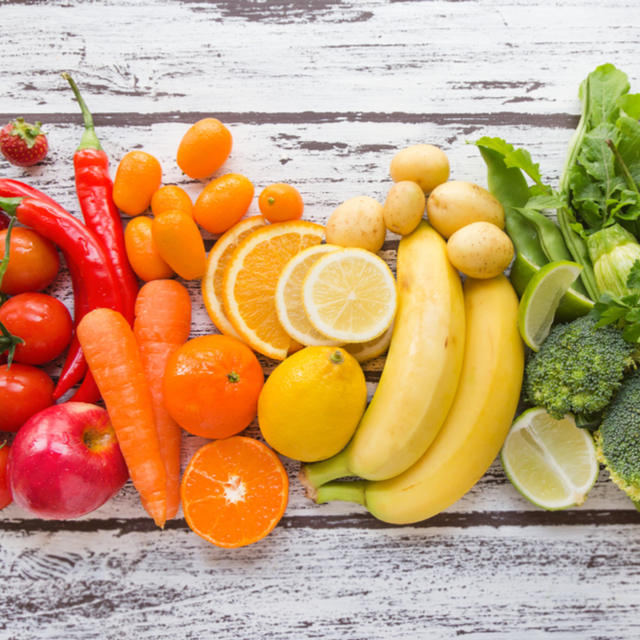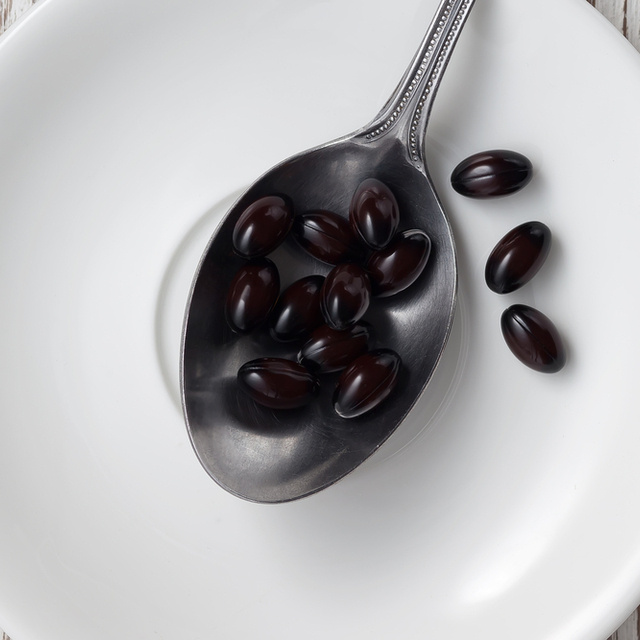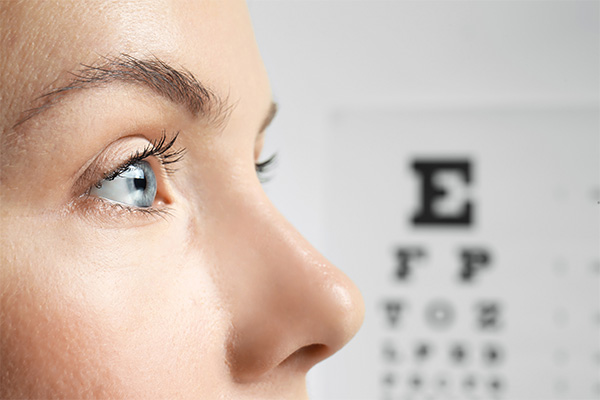What are Carotenoids?
What Are Carotenoids?
Carrots and other brightly-colored fruits and vegetables owe their pigmentation, in part, to a group of fat-soluble phytonutrients called carotenoids, which are loaded with antioxidants. Carrots, tomatoes, dark green leafy vegetables, sweet potatoes, and many other natural foods wouldn’t be as colorful or as nutritious without them.
Carotenoids are essential nutrients that help protect against oxidative stress and benefit our health in many ways, but since our bodies don’t produce them, the only way to get carotenoids is through the foods we eat and from carotenoid supplements.1 So, let’s talk about the benefits of carotenoids and how to get more of them in your diet.
What are the Benefits of Carotenoids?
Researchers believe that many of the benefits of carotenoids are due to their free-radical fighting potential.2 Carotenoids act as antioxidants to help combat damage from oxidative stress. They are among the most robust antioxidants nature has to offer, and different carotenoids have an affinity for different areas of the body. The carotenoids that have been most studied for their health benefits include beta-carotene, lycopene, lutein and zeaxanthin.2
Carotenoid Health Benefits:
- Antioxidant Support
When you consume carrots or other carotenoid-rich foods, you are consuming antioxidants that help fight oxidative stress, which is believed to be a major contributor to aging and age-related health concerns.3 Also, antioxidants may be one of the best ways to support cardiovascular health.4 - Vision Health
Both lutein and zeaxanthin, two well-studied carotenoids, have been shown in multiple clinical studies to help promote vision health and protect your eyes from the harmful effects of blue light exposure.5,6 Age-related vision concerns are common in older Americans, so many doctors and nutritionists recommend eating plenty of carotenoid-rich fruits and vegetables. - Skin Health
While not strong enough on their own to protect you from the damaging effects of too much sun exposure, carotenoids may work to help your body protect itself from ultraviolet rays.5 Once converted from source carotenoids, active vitamin A may help reduce oxidative damage caused by the sun. Studies have shown that some carotenoids may also help protect skin tissue and cells from environmental toxins.7 - Immune Health
A higher intake of carotenoids is associated with a natural boost in immune health.8 Along with antioxidants, carotenoids are also known to contain acetylenics, a group of metabolites that have been studied for their potential role in promoting wellbeing and boosting immune function.7
While beta-carotene, lycopene, lutein and zeaxanthin might be the most studied carotenoids, you may not know a lot about them. Let’s take a closer look.
5 Common Carotenoids
- Beta-Carotene
Your body converts beta-carotene to vitamin A, an essential nutrient that has antioxidant activity and helps protect your cells from damage. Beta-carotene is found in fruits, vegetables and some whole grains.9 - Lycopene
Lycopene is responsible for giving many fruits and vegetables (especially tomatoes) their red color. While not considered an essential nutrient, its potential benefits include everything from promoting skin health to cardiovascular support.10 Lycopene has also been studied for supporting prostate health10 and is a popular ingredient in many men’s health supplements. - Lutein
There is abundant evidence that shows lutein may help support vision health and generally provides a protective effect for the eyes.6 - Zeaxanthin
Together, zeaxanthin and lutein are the predominant carotenoids in the macula and retina6 and both help absorb blue light, a particularly harmful type of light from electronic devices and other light sources. These two carotenoids are among the most well-studied and well-documented natural vision protectors. - Astaxanthin
Astaxanthin is a high-powered antioxidant with a molecular structure that makes it very effective at neutralizing free radicals. Like most carotenoids, its benefits include support for vision, skin, joint and immune health.11
Foods Rich in Carotenoids
Look for vibrant color in the produce section as your guide for choosing foods rich in carotenoids. According to Dr. Michael Roizen, “You can spot carotenoids by the red, orange, green, and yellow color they impart to foods such as tomatoes, carrots, and apricots—basically, any fruit or vegetable with these hues. Also, carotenoids are plentiful in dark leafy green vegetables: spinach, broccoli and kale. Carotenoids are one of the reasons eating a diet rich in fruits and vegetables can help keep you young.”
Fruits and vegetables are the most common sources, but egg yolks and red or orange-pigmented seafood are also sources of carotenoids. Here’s a list of carotenoid superfoods you can get at the grocery store:
- Carrots
- Tomatoes
- Spinach
- Sweet Potatoes
- Turnips
- Kale
- Plums
- Apricots
- Mangoes
- Melon
- Egg Yolks
- Salmon
Try to add these carotenoid-packed foods to your diet each week to support everyday wellness.
Carotenoids to Support Eye Health
Lutein and zeaxanthin are the primary xanthophyll carotenoids found in the macula and retina of the eye. These powerful antioxidants help protect eye tissues from free radicals and the harmful effects of UV rays from the sun and blue light from modern electronic devices.
In addition to getting carotenoids from your diet, you can help fill nutrient gaps with supplements for eye health like Swanson Vision Defense Eye Health Formula–our award-winning supplement for eye health with a powerful blend of 20 mg of lutein and zeaxanthin derived from marigold extract, plus an ultra-potent antioxidant blend of bilberry extract, broccoli extract and astaxanthin. Another excellent options is Swanson Synergistic Eye Health which delivers these fat-soluble carotenoids in easy-to-swallow sunflower seed oil-based softgels.
Learn more about how to protect your eyes in Important Facts about Blue Light and Eye Health, and learn all about astaxanthin in Astaxanthin Benefits.

About Bushra Hassan, MBA, RD & LDN
Bushra is an expert in supplement development, nutrition education, wellness coaching, and product brand management. Her work focuses on diet and nutrition, digestive health, and integrative and functional medicine. She enjoys baking, trying new restaurants, and exploring beautiful Chicago.
*These statements have not been evaluated by the Food and Drug Administration. These products are not intended to diagnose, treat, cure, or prevent any disease.
Sources
1. Carotenoids of Biotechnological Importance. National Library of Medicine. Read source
2. The Role of Carotenoids in Human Health. National Library of Medicine. Read source
3. Oxidative Stress, Cellular Senescence, and Ageing. Molecular Science. See source
4. Antioxidants. National Center for Complimentary and Integrative Health. Read source
5. Lutein and Zeaxanthin in Eye and Skin Health. Clinical Dermatology. Read source
6. Macular Pigments Lutein and Zeaxanthin. PubMed. Read source
7. 5 Health Benefits of Carotenoids. Global Healing Center. Read source
8. Carotenoids and Immune Function. Springer Link. Read source
9. Beta-Carotene. WebMD. Read source
10. Health Effects of Tomato Lycopene. National Library of Medicine. Read source
11. Astaxanthin. WebMD. Read source




